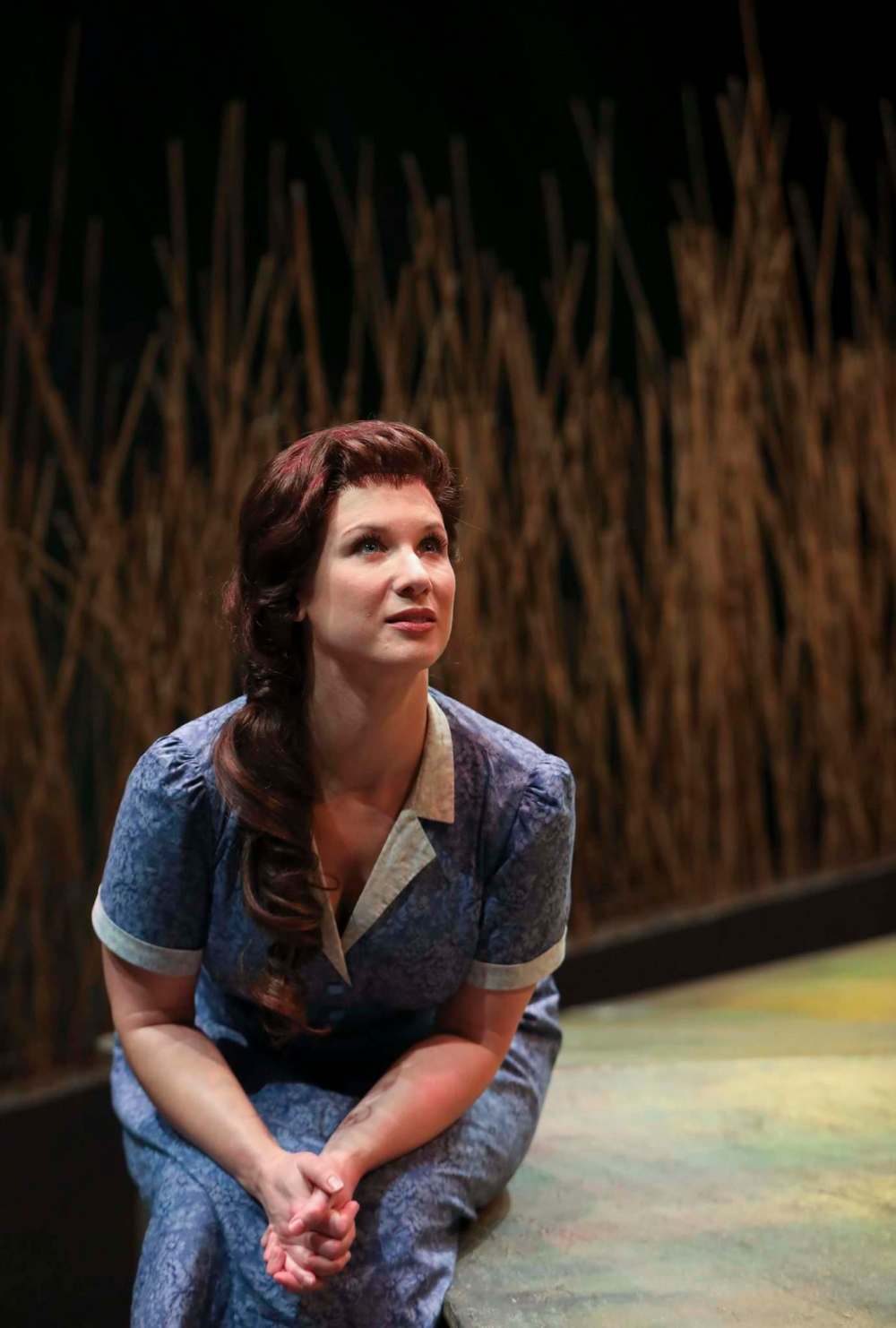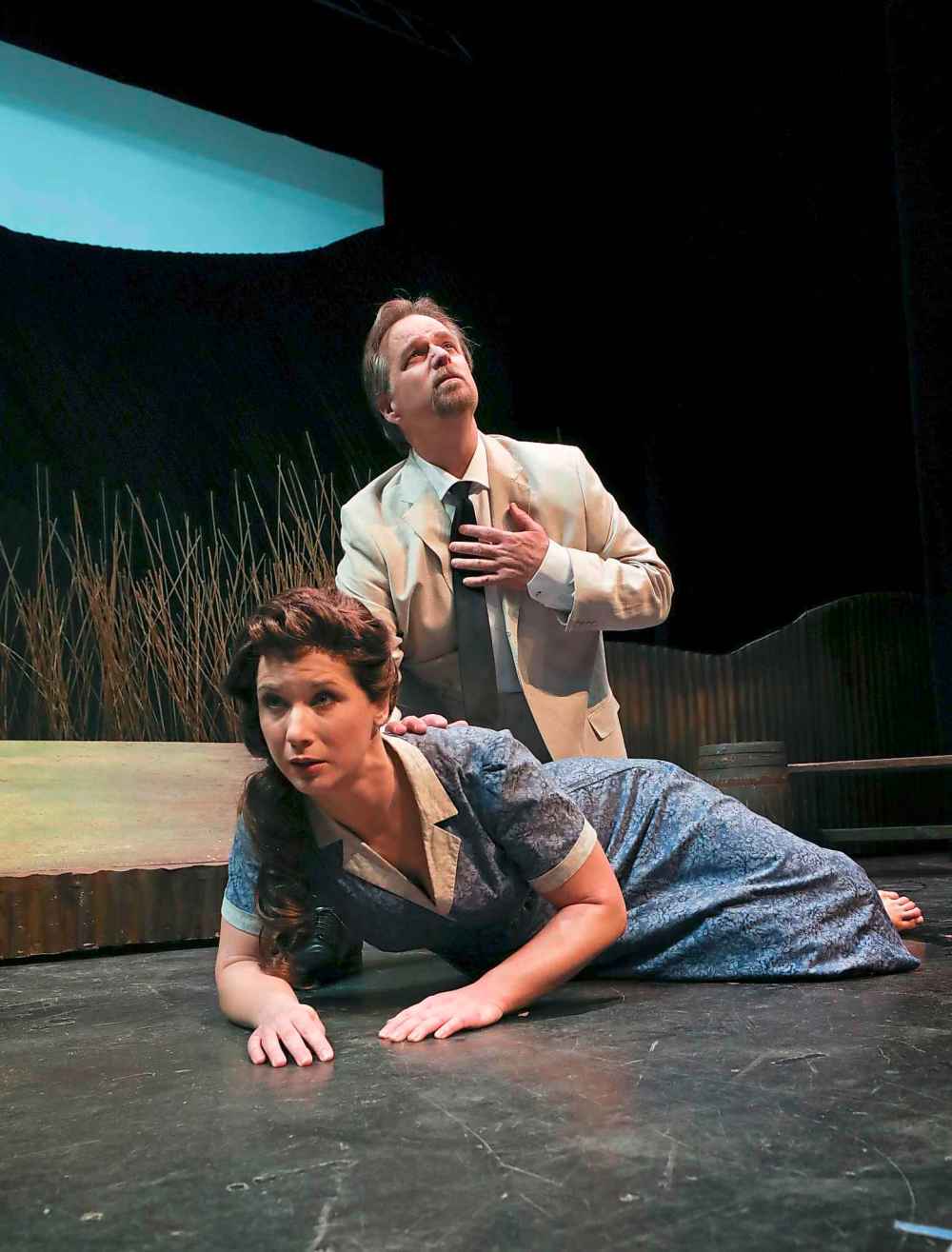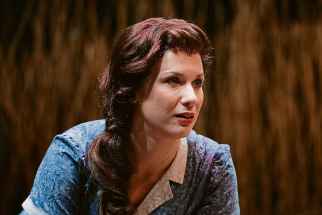Don’t you cry for me Winnipeg soprano strives to portray dark opera's Susannah as a survivor
Read this article for free:
or
Already have an account? Log in here »
To continue reading, please subscribe:
Monthly Digital Subscription
$0 for the first 4 weeks*
- Enjoy unlimited reading on winnipegfreepress.com
- Read the E-Edition, our digital replica newspaper
- Access News Break, our award-winning app
- Play interactive puzzles
*No charge for 4 weeks then price increases to the regular rate of $19.00 plus GST every four weeks. Offer available to new and qualified returning subscribers only. Cancel any time.
Monthly Digital Subscription
$4.75/week*
- Enjoy unlimited reading on winnipegfreepress.com
- Read the E-Edition, our digital replica newspaper
- Access News Break, our award-winning app
- Play interactive puzzles
*Billed as $19 plus GST every four weeks. Cancel any time.
To continue reading, please subscribe:
Add Free Press access to your Brandon Sun subscription for only an additional
$1 for the first 4 weeks*
*Your next subscription payment will increase by $1.00 and you will be charged $16.99 plus GST for four weeks. After four weeks, your payment will increase to $23.99 plus GST every four weeks.
Read unlimited articles for free today:
or
Already have an account? Log in here »
Hey there, time traveller!
This article was published 22/11/2019 (2208 days ago), so information in it may no longer be current.
Opera has never shied away from taboo subjects such as incest, murder and rape, among other acts of human depravity that serve as dark counterpoint to its lighter fare.
Opera Preview
Susannah
Manitoba Opera
● Saturday, 7:30 p.m.; Tuesday, 7 p.m.; Friday, Nov. 29, 7:30 p.m.
● Centennial Concert Hall
● Tickets $39-$135 at mbopera.ca
Manitoba Opera presents one of those fearless works Saturday when it opens its 47th season with the company debut of Carlisle Floyd’s Susannah, featuring Winnipeg soprano Lara Ciekiewicz as a wide-eyed innocent living in the mountain village of New Hope Valley, Tenn.
The two-act opera sung in English (with projected surtitles) — which won the New York Music Critics Circle Award for Best New Opera in 1956 — is staged by award-winning director, dramaturge and choreographer Kelly Robinson, in his first Manitoba Opera production since 1998. The opera is loosely based on the biblical story of Susanna and the Elders; next to the Gershwins’ Porgy and Bess, it’s the most performed American opera.
Floyd’s melting-pot score will be performed by the Winnipeg Symphony Orchestra, led by Tyrone Paterson, during the three-performance run.

The story tells the tale of Susannah, shunned and shamed by her tight-lipped religious community after being spied bathing nude by a secluded creek. Later, she is raped by fire-and-brimstone preacher Rev. Olin Blitch, and spirals downwards when her crushing story of abuse is not believed — a story that’s sadly as relevant in today’s #MeToo generation as when first penned by Floyd in 1955.
Ciekiewicz thinks it’s important not to portray Susannah as a victim, while noting the challenges of the role.
“It is a great honour to perform this character,” says the soprano, who last appeared on the Manitoba Opera stage in 2015’s production of The Marriage of Figaro. “At the beginning of the opera, there’s so much joy and wonder in Susannah about the possibility of life, and ultimately that’s what gets robbed from her, aside from her innocence and bodily autonomy.
“I am very lucky to not be a trauma survivor, but there may be people in the audience who are. It’s very important to lean into her story and not shy away from it, but also not to make her a victim, because right to the end, she’s always fighting for what’s possible.”
Susannah’s rape is implied during the opera and not shown onstage, but counsellors from Klinic Community Health will be available during each performance in case viewers are triggered by the show’s content.

Robinson, who is based in New York and is the former executive director of Banff Centre’s theatre arts program (he’s also director of creative development with Toronto’s Mirvish Productions and earned a law degree from York University), last directed Susannah in 2001 for Calgary Opera.
That production featured another Winnipeg artist in the title role, soprano Valdine Anderson, who helped coach Ciekiewicz this summer.
“It was a great pleasure coming back to the piece, but it has also felt like an entirely different responsibility in terms of storytelling,” Robinson says of revisiting the work 18 years later, in a world scarred by news about famous power brokers and the violence they perpetrate against women.
“Our understanding of what power relationships are, and how that manifests in the victims of violence, has changed so much today that I think audiences view the piece in an entirely different way than they did back then,” Robinson says, adding he intentionally worked with a female American dramaturge as he prepared for rehearsals, taking a deep dive into his own ideas and beliefs about the opera.
“At the beginning of the opera, there’s so much joy and wonder in Susannah about the possibility of life, and ultimately that’s what gets robbed from her, aside from her innocence and bodily autonomy.” – Soprano Lara Ciekiewicz
Robinson sings praises for Ciekiewicz, whom he also directed during the Banff Centre’s co-commissioned première with Calgary Opera of Frobisher in 2011: “She’s doing magnificently, and clearly understands how the end of the opera is really about Susannah regaining a sense of her power; however, her story and power have forever changed.”
He also promises the soaring performance of her character’s two big arias, Ain’t it a Pretty Night — immortalized by American soprano Renée Fleming — and the more melancholic The Trees on the Mountain.
American bass-baritone Kristopher Irmiter is performing the role of the troubled revivalist preacher for the fifth time; Carlisle Floyd, now 93, directed Irmiter’s debut as Blitch during a college performance at Florida State University. The South Carolina-born singer, who also appeared in Manitoba Opera’s Fidelio in 2014, has the requisite Deep South accent employed in the opera (think “cain’t” for “can’t”).
“Blitch is sincere, dynamic and deeply flawed,” Irmiter says. “It was a real treat to sing for Carlisle, who also directed the production, and I was able to pepper him with questions. It was a terrific experience for me as a young singer.”

The affable performer also welcomes the challenge of creating a believable man of the cloth who writes his own ticket to hell. Irmiter strives to make his villainous character one for viewers to not categorically condemn, but engage with in constructive discourse.
“I need to be true to the page, but it becomes a much more compelling story when you see the sincerity of Blitch, and how he is confronted by his own weaknesses,” he says. “This opera makes you think, and I personally love when we can be involved with a piece that leads to conversations after you leave the theatre.”
Ciekiewicz adds her own thoughts: “There’s no question this is a heavy show, but it’s also one that will steal people’s hearts. I fell in love with Susannah the first time I ever saw the opera, and it’s been a great privilege bringing her to life and hopefully do justice to her story,” she says.
“In the end, Susannah is a survivor.”
holly.harris@shaw.ca










